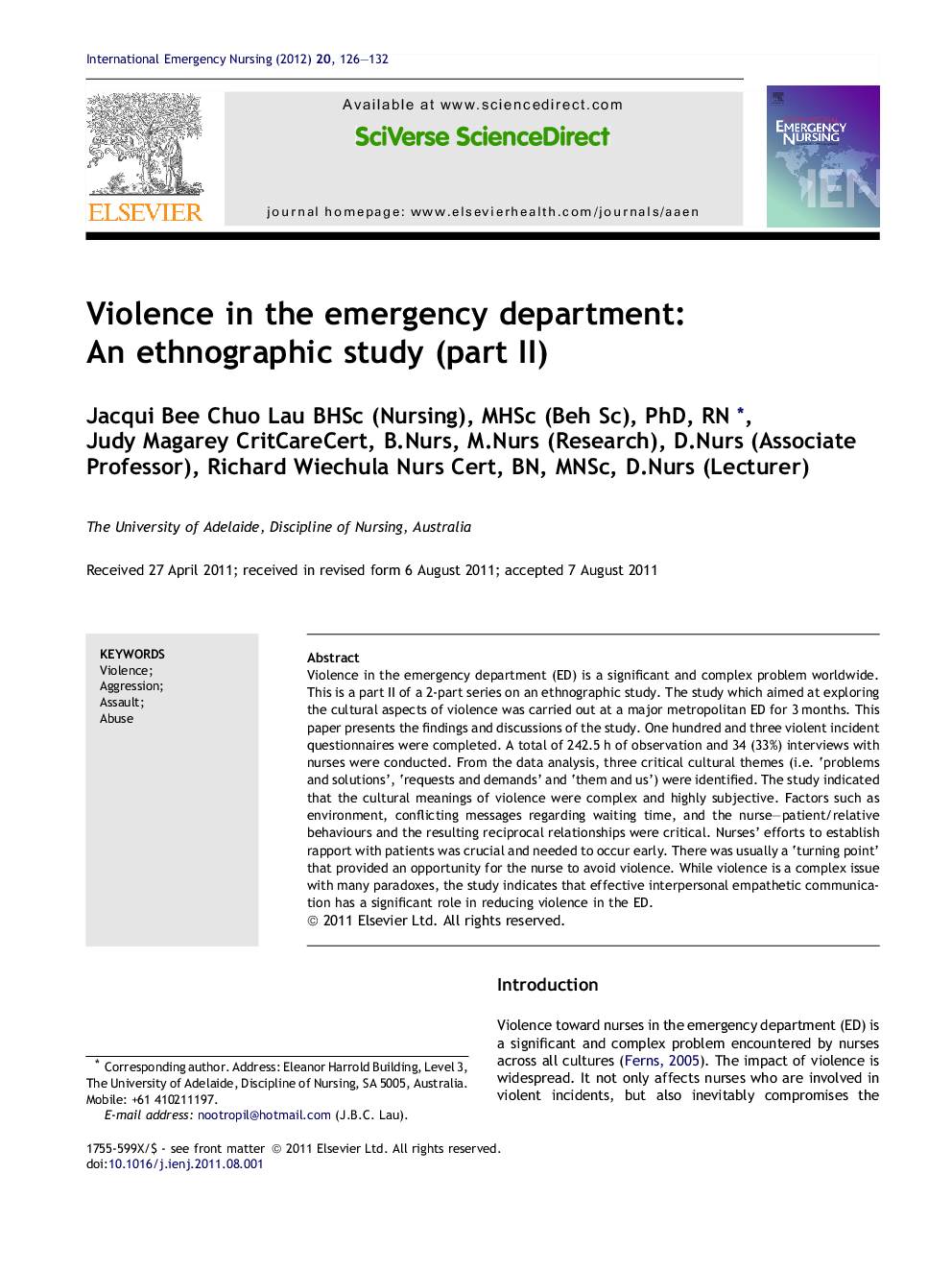| Article ID | Journal | Published Year | Pages | File Type |
|---|---|---|---|---|
| 2609589 | International Emergency Nursing | 2012 | 7 Pages |
Violence in the emergency department (ED) is a significant and complex problem worldwide. This is a part II of a 2-part series on an ethnographic study. The study which aimed at exploring the cultural aspects of violence was carried out at a major metropolitan ED for 3 months. This paper presents the findings and discussions of the study. One hundred and three violent incident questionnaires were completed. A total of 242.5 h of observation and 34 (33%) interviews with nurses were conducted. From the data analysis, three critical cultural themes (i.e. ‘problems and solutions’, ‘requests and demands’ and ‘them and us’) were identified. The study indicated that the cultural meanings of violence were complex and highly subjective. Factors such as environment, conflicting messages regarding waiting time, and the nurse–patient/relative behaviours and the resulting reciprocal relationships were critical. Nurses’ efforts to establish rapport with patients was crucial and needed to occur early. There was usually a ‘turning point’ that provided an opportunity for the nurse to avoid violence. While violence is a complex issue with many paradoxes, the study indicates that effective interpersonal empathetic communication has a significant role in reducing violence in the ED.
